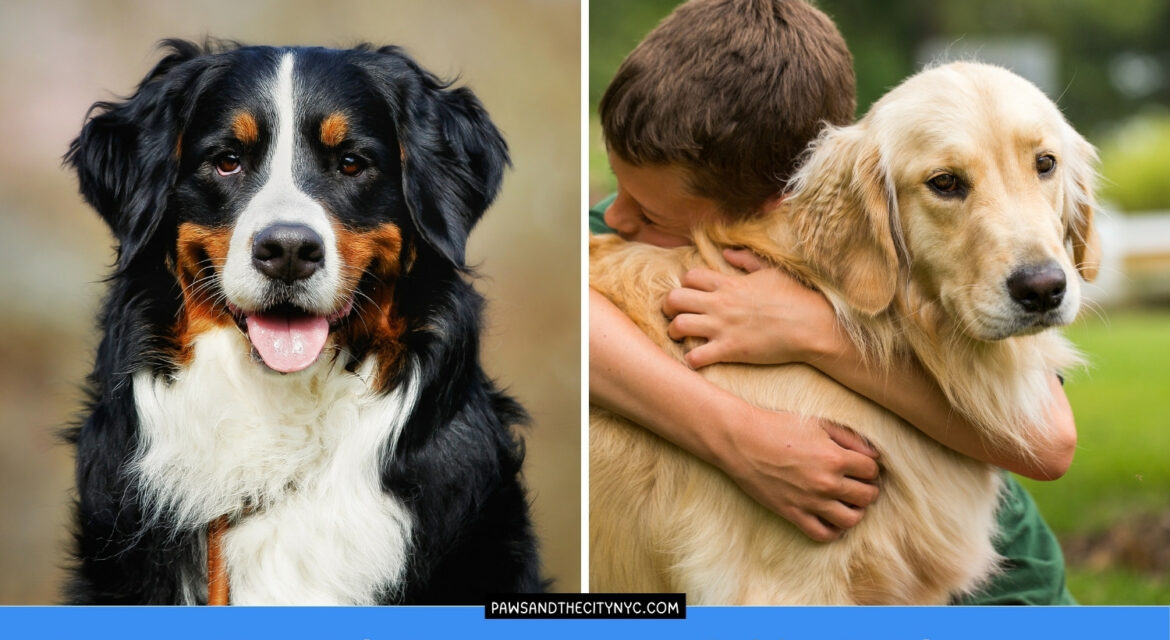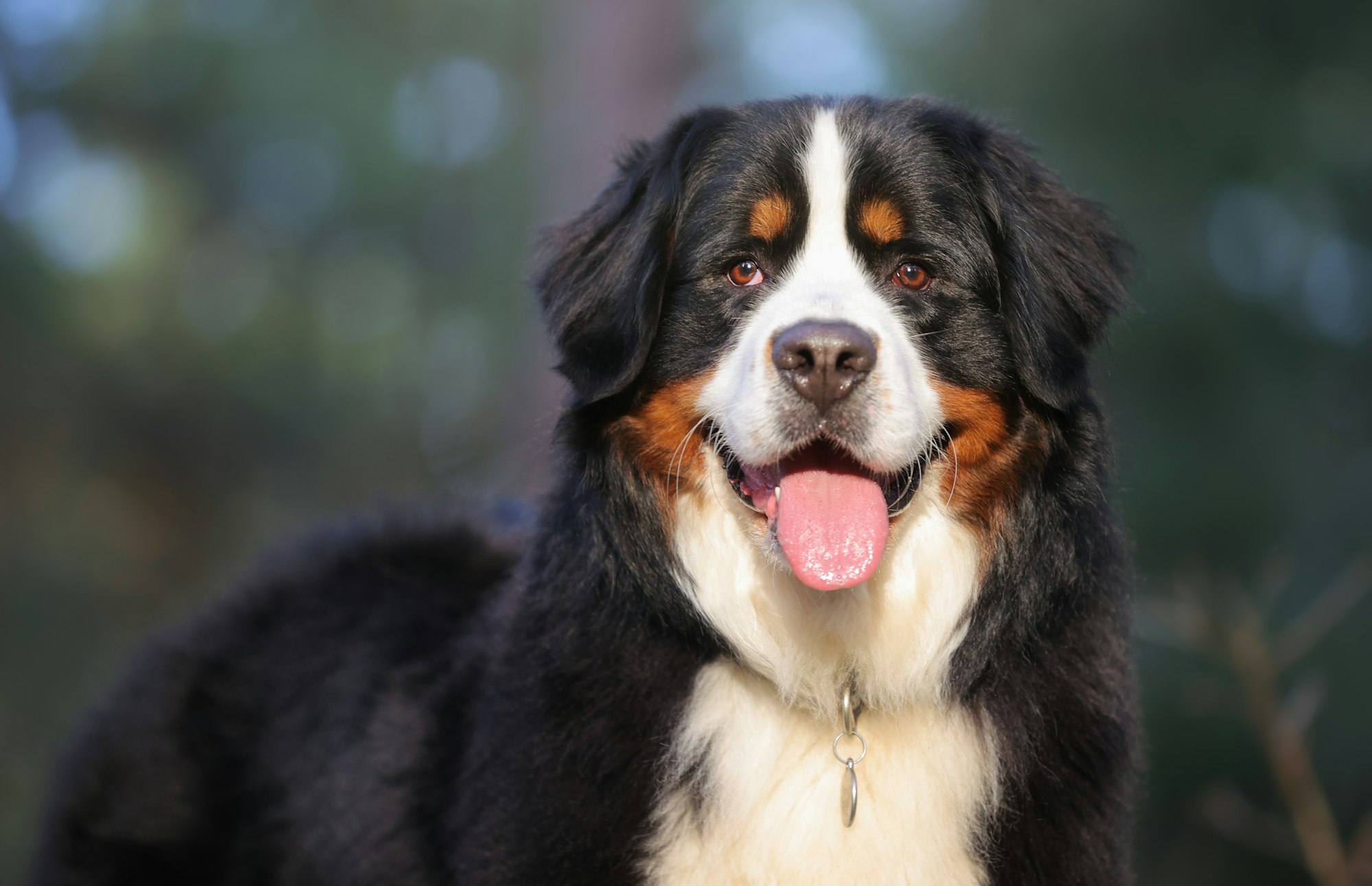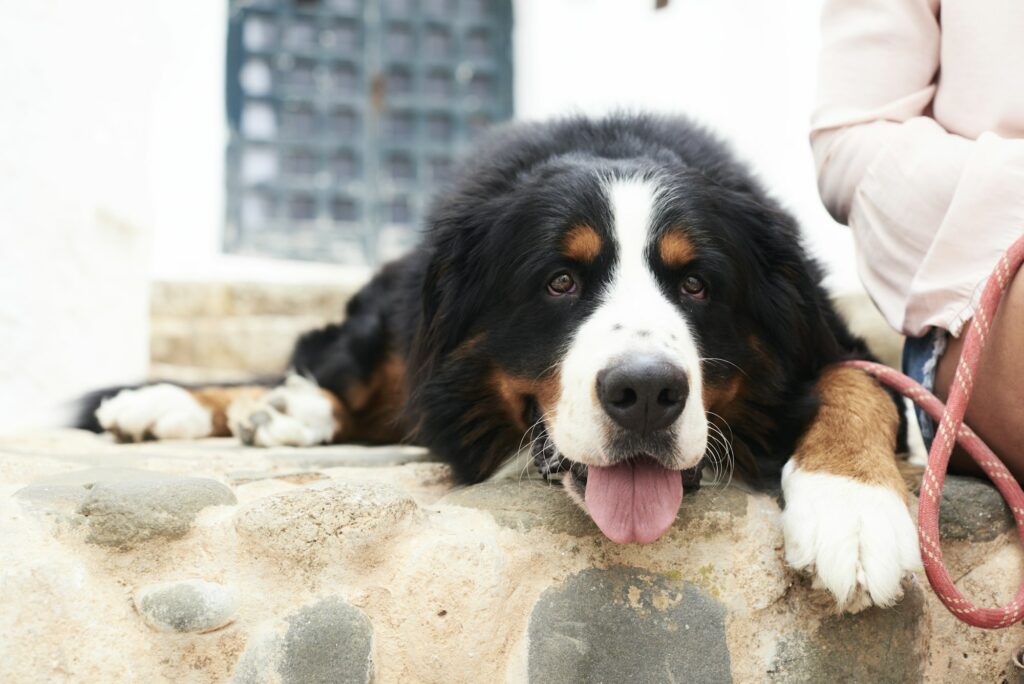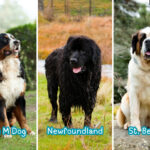 3 May
3 MayBernese Mountain Dogs vs Golden Retrievers
Choosing the perfect dog breed is more than just falling for a pair of soulful eyes or a fluffy coat; it’s about finding the right match for your lifestyle. Whether you’re considering the sturdy and affectionate Bernese Mountain Dog or the friendly and adaptable Golden Retriever, both breeds offer distinct qualities that might or might not suit your home environment and personal schedule.
In this guide, we’ll explore the key differences between Bernese Mountain Dogs and Golden Retrievers, from their temperaments and exercise needs to their grooming requirements and overall health. By understanding these differences, you can make a well-informed decision about which breed is the best fit for you and your family. Let’s find out which of these beloved breeds aligns with your lifestyle.
Overview of Bernese Mountain Dogs
Origin and History
Bernese Mountain Dogs, originally from the Swiss Alps, were bred as farm dogs capable of herding livestock, pulling carts, and serving as watchdogs. Their history in the rugged alpine regions shaped them into the strong and resilient dogs they are today, making them a beloved breed for those who appreciate a combination of utility and companionship.

General Characteristics
Bernese Mountain Dogs are known for their impressive size, with males typically weighing between 80 to 115 pounds. They possess a striking tri-colored, long, silky coat that requires regular grooming. Known for their calm and gentle temperament, they are incredibly loyal to their families, making excellent companions. However, their size and energy level require adequate space and exercise to maintain a healthy lifestyle.
Overview of Golden Retrievers
Origin and History
Golden Retrievers were developed in Scotland during the 19th century to be the perfect hunting dogs, skilled in retrieving game from both water and land. Their friendly and tolerant attitude has not only made them excellent hunting companions but also versatile in roles such as guide dogs, service dogs, and in search and rescue.
General Characteristics
Golden Retrievers are medium-sized dogs, weighing in at about 55 to 75 pounds. They have a dense, water-repellent outer coat with a thick undercoat that sheds seasonally and requires regular grooming. Known for their intelligence and friendly, eager-to-please demeanor, Goldens are one of the most popular family dogs globally. They adapt well to a variety of living situations but thrive in active households where they can get plenty of exercises and mental stimulation.
As an experienced dog groomer working at PawsAndTheCityNYC, I have had the opportunity to work extensively with both Bernese Mountain Dogs and Golden Retrievers. This experience has provided me with a deep understanding of their needs and characteristics, helping potential pet owners make informed decisions based on practical, firsthand knowledge of what it takes to care for these breeds.

Temperament Comparison
Both Bernese Mountain Dogs and Golden Retrievers are known for their friendly natures, but they display some distinct differences in temperament that can influence their fit with various families and living environments.
Friendliness and Social Behavior
Bernese Mountain Dogs are often described as gentle giants. They are typically very calm and patient, making them excellent companions. Their demeanor is a blend of aloofness with strangers and deep affection for their family, which can sometimes be perceived as shyness. They require early socialization to become well-adjusted adults, as their protective nature can lead to wariness around unfamiliar people without proper training.
Golden Retrievers, on the other hand, are almost universally outgoing and are known for their approachable and friendly personality. They make friends easily and are often very enthusiastic about meeting new people. This trait makes them less suitable as guard dogs but excellent for families or social individuals who host guests frequently.
Interaction with Children and Other Pets
When it comes to children, both breeds are generally excellent companions due to their gentle nature. Bernese Mountain Dogs are very tolerant, and their sturdy build means they can handle the rough play of children without any trouble, although their size should always be monitored to avoid accidental injuries. They are also usually good with other pets, especially if raised with them from puppyhood.
Golden Retrievers excel in families with children and are often patient and protective. Their playful nature makes them more engaging playmates, and they often actively participate in games and activities. Thanks to their non-aggressive demeanor, they are also typically very good with other animals, including dogs and cats.
Exercise Needs
Both Bernese Mountain Dogs and Golden Retrievers have specific exercise needs that are vital to their health and happiness. Understanding these can help potential owners provide the best care for their pets.

Exercise Requirements of Bernese Mountain Dogs
Despite their large size, Bernese Mountain Dogs have moderate exercise needs. They require regular physical activity to maintain their health, including daily walks and opportunities for free play in a secure area. Due to their heavy build and thick coat, they can be more prone to overheating, so it’s important to monitor their exercise during hot weather. Ideal activities for Bernese Mountain Dogs include hiking, pulling activities like carting, and moderate fetching games, which also cater to their working heritage.
Exercise Requirements of Golden Retrievers
Golden Retrievers, in contrast, are highly energetic and require more intensive exercise to keep them physically and mentally stimulated. They thrive on interaction and enjoy activities that involve their families, such as long walks, jogging, swimming, and fetching games. Regular, vigorous exercise is essential to prevent behavioral issues stemming from boredom and to keep their weight under control. Due to their retriever nature, they particularly enjoy games that involve retrieving objects or water activities.
Grooming and Maintenance
Proper grooming is crucial for both breeds not only to keep them looking their best but also to ensure their comfort and health.
Grooming Needs of Bernese Mountain Dogs
Bernese Mountain Dogs have a thick, long double coat that requires regular maintenance. They need to be brushed several times a week to prevent matting and to manage shedding, especially during the spring and fall shedding seasons. They should be bathed every few months or as needed. It’s also important to keep their nails trimmed and to regularly check their ears and teeth for signs of infection or buildup.
Grooming Needs of Golden Retrievers
Golden Retrievers also have a dense, water-repellent double coat that sheds seasonally and requires regular grooming. Daily to weekly brushing is recommended to remove loose fur, minimize shedding, and prevent matting. Due to their active nature, they tend to get dirty, so more frequent baths may be necessary. As with Bernese Mountain Dogs, maintaining nail length, ear cleanliness, and dental health is important.

Health and Lifespan
Understanding the potential health concerns and expected lifespans of Bernese Mountain Dogs and Golden Retrievers is crucial for prospective owners when choosing between them.
Common Health Issues in Bernese Mountain Dogs
Bernese Mountain Dogs are unfortunately known for their relatively short lifespans and susceptibility to certain health issues. Major concerns include hip and elbow dysplasia, which are common in larger breeds. They are also prone to hereditary cancers such as malignant histiocytosis, which significantly affects their lifespan. Regular vet check-ups and screening for these conditions can help manage their health.
Common Health Issues in Golden Retrievers
Golden Retrievers are generally healthy but are prone to specific health problems. Like Bernese Mountain Dogs, they can suffer from hip and elbow dysplasia. They are also at a higher risk for certain cancers, including lymphoma and mast cell tumors. Heart disease and eye conditions are other concerns that require attention. Preventative care and regular veterinary visits are important to prolong their health.
Comparative Lifespan
Bernese Mountain Dogs typically have a shorter lifespan, often ranging from 6 to 8 years. Golden Retrievers live longer, usually between 10 and 12 years. Potential dog owners must consider this difference when choosing between these two breeds.
Suitability for Different Lifestyles
Best Living Conditions for Each Breed
Bernese Mountain Dogs thrive in environments where they have plenty of space to move and access to the outdoors. They are well-suited for homes with yards and are better off in cooler climates due to their thick coats.
Golden Retrievers are more adaptable in terms of living conditions. They do well in both houses with yards and in larger apartments as long as their exercise needs are met. They are tolerant of various climates, but like all dogs, need shade and water available when it gets hot.
Considerations for Apartment Living, Families, Active Individuals, Etc.
Golden Retrievers can adapt to apartment living if given sufficient exercise. Bernese Mountain Dogs might find apartment living more challenging due to their size and energy levels. Both breeds are excellent with families, offering loyalty and protection. However, for active individuals or families, Golden Retrievers might be more suitable due to their high energy and enthusiasm for participating in activities.
Cost of Ownership
Initial Costs, Health Care, Grooming, and Feeding for Each Breed
- Initial Costs: Both breeds require an investment in high-quality food, bedding, toys, and training classes. Initial costs for a puppy, including vaccinations and spaying/neutering, can be significant.
- Health Care: Prospective owners should budget for regular veterinary care. Given the health issues associated with each breed, potential costs for treatments or preventive surgeries should be considered.
- Grooming: Regular grooming is essential, especially for Bernese Mountain Dogs with their thick coats. Professional grooming expenses should be factored into the overall cost.
- Feeding: Both breeds require a substantial amount of high-quality dog food, which can add up. The larger the dog, typically the higher the feeding cost.




